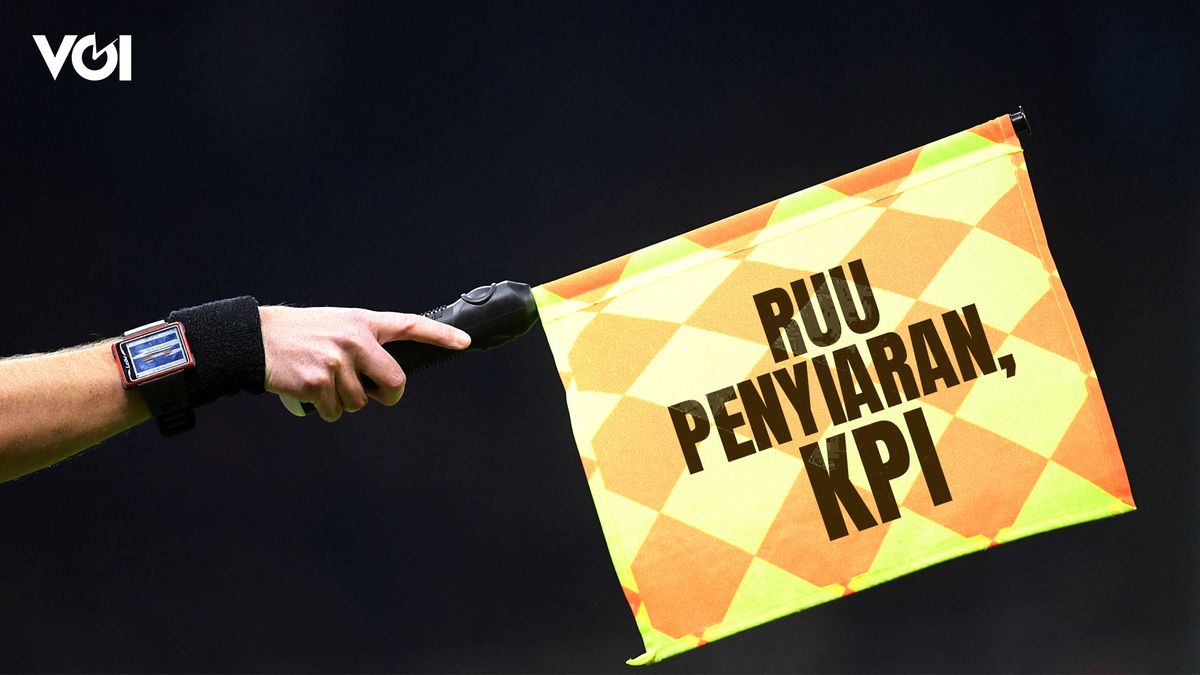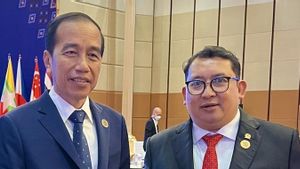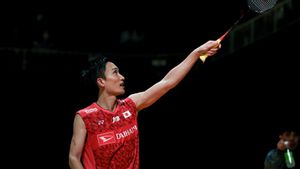JAKARTA - The role of the Press should not be forgotten or considered worthless by the current government. The reason is, the Press has an important role in fighting for the Indonesian people to gain independence.
The aspirations of Indonesian press people in the era of movement other than as journalists are also political activists who often intersect directly with the invaders. They move not on behalf of the profession but based on nicknames in revealing the truth.
Journalists during the movement and struggle have two very important tasks. The first task as a person who provides the widest possible information to people throughout the country with the aim of increasing national awareness. And the second task is no less important, as a political activist who is directly involved in fighting against the occupation of Japan and allied soldiers.
Allied Soldiers consisting of the Netherlands, England, Australis and America are preparing to strip the Japanese army and thwart the momentum of the Proclamation of Indonesian Independence.
The desire of Japan and the Allies is only one, namely thwarting the establishment of the Republic of Indonesia which Soekarno-Hatta will read out at the house of Pegangsaan Timur 56, Jakarta. This caused major and small physical clashes between the invaders and the Indonesian people in all corners of the country. Journalists who are members of the Indonesian Journalists Association (PWI) are engaged together and struggling to maintain Indonesia's Proclamation.
Japanese-controlled printing was captured to print various newspapers to distribute various information and raise national awareness of the Indonesian people. The goal is that there was only one movement journalist, the people must be free from colonialism and independence of the Indonesian state, recognized by the world.
The Indonesian news is the first newspaper published in Jakarta with the composition of Sidi Mohammad Sjaaf's editor, Rusli Amran. Then followed by the Merdeka Daily led by BM Diah (Minister of Information 1966), and the Rakjat newspaper under the leadership of Sjamsuddin Sutan Makmur (Minister of Information 1955) and Rinto Alwi,
PWI Asks KPI Not To Handle Complaints Handling
Indonesian journalists have started to get a nationally covered place since February 9, 1046. The national press personnel forum was named the Indonesian Journalists Association (PWI).
The Indonesian Journalists Association (PWI) became a very important forum at that time in fighting for press freedom, protecting the rights of journalists, and fighting for the quality and ethics of journalism in Indonesia. And now, PWI has transformed into the oldest and largest journalist organization in Indonesia.
The date of the birth of PWI was made as National Press Day after President Suharto was appointed in 1985 through Presidential Decree Number 5 of 1985 concerning National Press Day. This Presidential Decree is proof that journalists play a role and have a big contribution from the world of journalism in advancing the nation.
Regarding the Draft Law on Broadcasting which became a polemic and threatened press freedom, General Chairperson of the Indonesian Journalists Association (PWI) Hendry Ch Bangun firmly rejected it. According to him, there are two clauses that are important notes from polemics caused by the Broadcasting Bill. "What we are concerned about is actually two. First, regarding the prohibition of investigative journalism, the second will be a dispute over authority in handling complaints," said PWI Chairman Hendry CH Bangun in a written message received by VOI.
Hendry mentioned his concern about the second clause regarding the authority dispute in handling complaints that are planned to be handled by the Indonesian Broadcasting Commission (KPI). He emphasized that the rules for handling complaints on press issues were not handled by KPI.
"We all know that KPI is fit and proper in the DPR, so there are political nuances in it. If it is still like this, the article will have a power dispute. Now, what we think should be revoked in the bill," said Hendry.
Hendry assessed that the handling of press dispute complaints had been carried out by the Press Council objectively and always maintaining independence. Henri emphasized that the objectivity of the Press Council was due to being elected by the press community. "I know very well that the handling of press disputes has been good, very objective, independent, not affected. That's because the Press Council was elected by the press community," he said.
DPR Asked To Review Broadcasting Bill
The General Chairperson of the Indonesian Television Journalists Association (IJTI) pays attention to the draft Broadcasting Law, both in terms of the preparation and subtance processes.
From the drafting process, IJTI regretted that the draft revision of the Broadcasting Law seemed to be prepared inaccurately and had the potential to threaten press independence, especially the preparation did not involve various parties such as the professional organization of journalists or the press community. In the draft revision of the Broadcasting Bill, there are a number of articles that are of special concern to IJTI.
"Subtantially, the article prohibiting exclusive broadcasts of investigative journalism on television can be interpreted as an effort to intervene and silence press independence in the country. This effort is certainly a serious threat to press life which is being built together with a full sense of responsibility. Not only that, it is feared that the revision of the Broadcasting Bill will become a tool of power and politics by certain parties to castrate professional and quality journalistic work," said IJTI Chairman Herik Kurniawan to VOI.
Herik said that in accordance with the Press Law, it was clear that the press community had the mandate to make its own regulations in order to regulate healthy, professional and quality press life through self-regulation. Based on that authority, any dispute related to journalistic works, broadcasting, print, digital (online) can only be resolved in the Press Council.
"This step is to ensure that journalistic work that is professional, quality and responsible can take place independently and there is no intervention from any party. We agree that the constitutional system uses democracy, and the press is the fourth pillar of democracy. The press has the responsibility as social control so that the state process runs transparently, accountably and fully fulfills public rights," he said.
Liputan Inveestigasi Dilindungi UU Pers No 40 Pasal 4
Chairman of the Press Council, Ninik Rahayu, revealed several reasons why his party rejected the revision of the Law (UU) on Broadcasting, which is being discussed by the DPR. The refusal was born because one of them contained points prohibiting the birth of investigative media. Ninik said, this contradicts the mandate contained in Law (UU) 40 Article 4.
"Because we actually know Law 40, we no longer know censorship, bradelan, and broadcasting prohibitions against quality journalistic works," said Ninik Rahayu.
Ninik said broadcasting exclusive investigative coverage is a form of professional and responsible journalistic work. Ninik questioned and questioned the draft of the Broadcasting Bill which is currently being discussed in the DPR. In the draft of the Broadcasting Bill, it is explained the handling of complaints on press disputes that will be submitted to KPI.
Ninik emphasized that the journalistic dispute that should have been resolved by the Press Council was also regulated in Presidential Decree 32 of 2024 which was recently ratified by the president.
"The government only admits that why in this draft dispute resolution related to journalism is actually submitted to broadcasting, this will really lead to a way of resolving that is not in accordance with the existing laws norms," he concluded.
Member of Commission I of the Indonesian House of Representatives (DPR RI), Dave Laksono, said that the draft of the Broadcasting Bill had never been discussed in Commission I of the DPR, had only been harmonized in Baleg. Dave explained that the harmonization in question is the examination related to the existence of articles that are contrary to other laws. "The discussion has not yet been included in anywhere. The enthusiasm does not apply to limiting access to information, it actually strengthens the broadcasting world," said Dave, who is also the son of Golkar Party politician Agung Laksono.
The English, Chinese, Japanese, Arabic, and French versions are automatically generated by the AI. So there may still be inaccuracies in translating, please always see Indonesian as our main language. (system supported by DigitalSiber.id)












